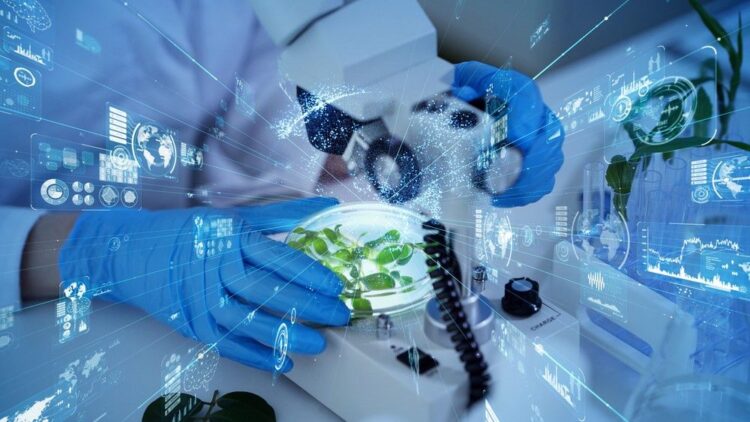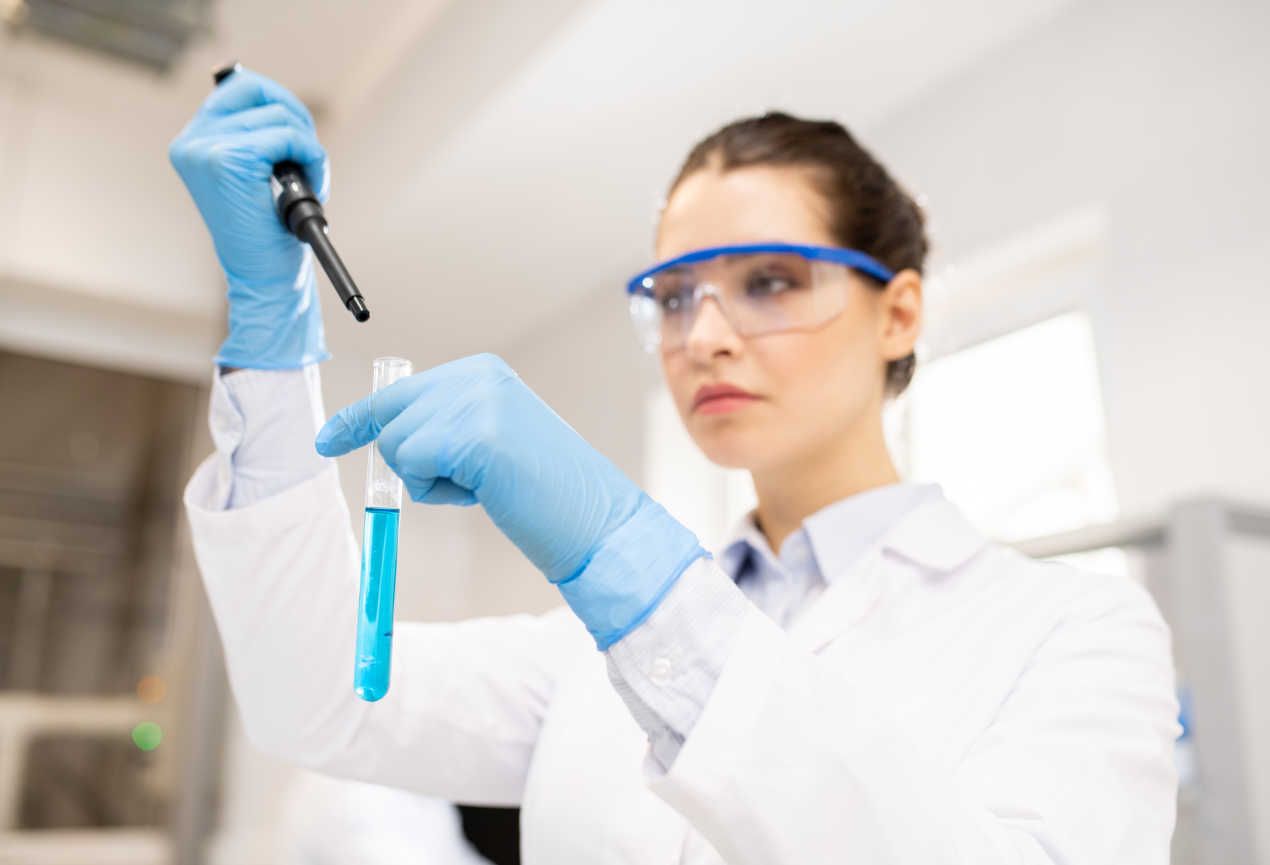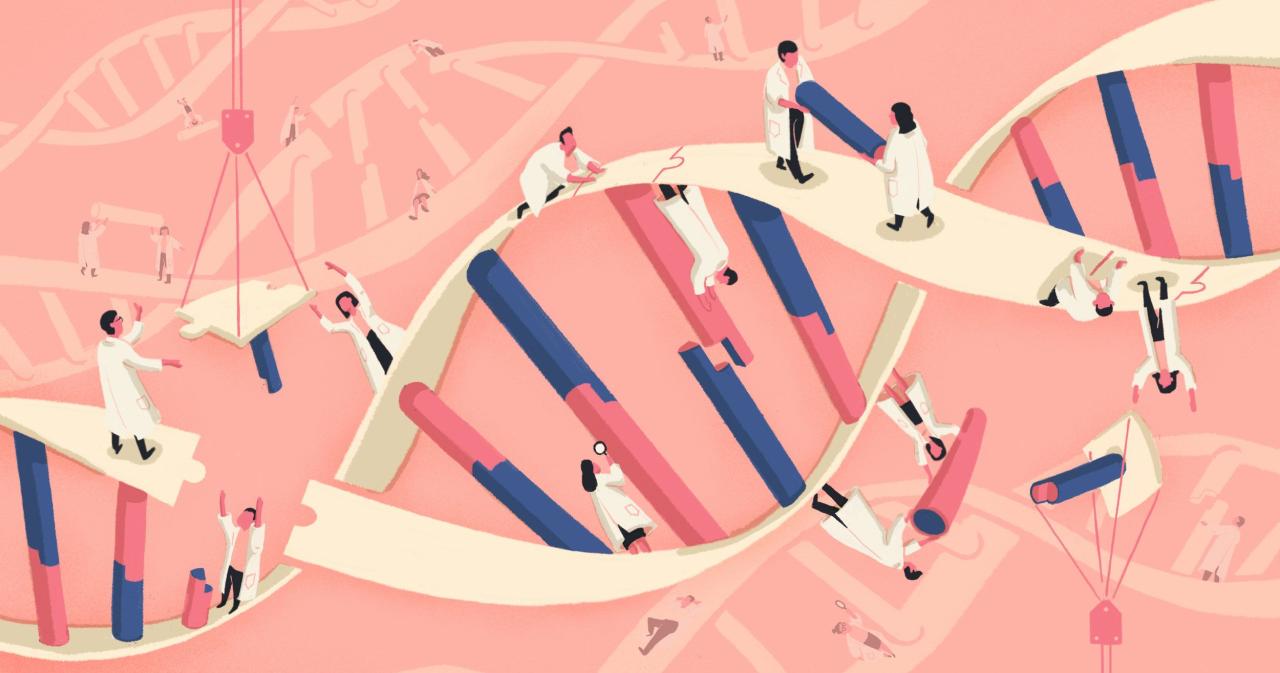The landscape of healthcare is undergoing an unprecedented revolution, fueled by rapid advancements in biotechnology. This dynamic field, at the intersection of biology and technology, is not merely enhancing existing medical practices; it’s fundamentally reshaping how we understand, diagnose, treat, and prevent diseases. From genetic editing and personalized medicine to groundbreaking drug discoveries and advanced diagnostics, biotech innovations are extending human lifespans, improving quality of life, and offering hope for conditions once deemed untreatable. We’re witnessing a pivotal moment where scientific ingenuity is transforming health as we know it, right here, right now.
The Genesis of Biotech: A Historical Perspective on Healthcare
To fully grasp the transformative power of today’s biotech breakthroughs, it’s crucial to understand the historical context of medicine and the incremental steps that led to this current era of rapid advancement.
A. Traditional Medicine: Empirical and Observational
For millennia, medicine was largely empirical and observational. Treatments were based on inherited knowledge, herbal remedies, and surgical interventions often performed with limited understanding of underlying biological processes.
- Herbalism and Folk Remedies: Ancient civilizations relied heavily on plants and natural compounds, passed down through generations. While some remedies had efficacy, the scientific basis was unknown.
- Early Surgical Techniques: Basic surgeries for injuries or ailments existed, but understanding of anatomy, infection, and pain management was rudimentary, leading to high mortality rates.
- Limitations of Knowledge: Without the ability to peer into the microscopic world or understand the molecular basis of disease, medicine was largely reactive and focused on symptom management rather than root cause eradication. The germ theory of disease, for example, only emerged relatively recently.
B. The Scientific Revolution in Medicine: Germs, Vaccines, and Antibiotics
The 19th and 20th centuries brought a scientific rigor to medicine, marking significant milestones that laid the groundwork for modern biotechnology.
- Germ Theory and Sanitation: Louis Pasteur and Robert Koch’s work revolutionized understanding of infectious diseases, leading to improved sanitation and hygiene practices.
- Vaccine Development: Edward Jenner’s smallpox vaccine (late 18th century) opened the door to preventing infectious diseases, a monumental step in public health. The 20th century saw vaccines for polio, measles, mumps, and rubella, saving countless lives.
- Discovery of Antibiotics: Alexander Fleming’s discovery of penicillin in 1928, and its subsequent mass production, transformed the treatment of bacterial infections, significantly reducing mortality from diseases like pneumonia and tuberculosis.
- Advancements in Surgery and Anesthesia: Improved understanding of anatomy, sterile techniques, and the development of anesthesia made complex surgeries safer and more feasible, expanding treatment options.
While these advancements dramatically improved public health, they were still largely “one-size-fits-all” solutions, lacking the personalized precision that modern biotechnology now offers.
C. The Dawn of Biotechnology: Unlocking the Genetic Code
The mid-20th century, particularly with the discovery of the structure of DNA, marked the true dawn of modern biotechnology, shifting medicine from symptom-based treatment to disease at its most fundamental level – the molecular and genetic.
- DNA Structure Elucidation (1953): Watson and Crick’s groundbreaking discovery of the double helix structure of DNA provided the blueprint for life and unlocked the potential for genetic manipulation.
- Recombinant DNA Technology (1970s): The ability to cut and paste DNA fragments from different organisms allowed scientists to engineer bacteria to produce human proteins, leading to the first biotech drugs like synthetic insulin.
- Polymerase Chain Reaction (PCR) (1980s): Kary Mullis’s invention of PCR enabled the rapid amplification of specific DNA sequences, revolutionizing diagnostics, forensics, and genetic research.
- Human Genome Project (1990-2003): This monumental international effort to map the entire human genetic code laid the foundational data for genomics, personalized medicine, and understanding genetic predispositions to disease.
These foundational breakthroughs paved the way for the exponential growth and transformative impact we are witnessing in biotechnology today.
Pillars of Modern Biotech: Key Areas of Innovation
Today’s biotechnology is characterized by several interconnected and rapidly advancing pillars, each offering unique avenues for health transformation.
A. Genomics and Gene Editing: Reshaping Life’s Blueprint
Genomics, the study of an organism’s complete set of DNA, combined with sophisticated gene-editing tools, is revolutionizing disease understanding and treatment.
- Next-Generation Sequencing (NGS): Dramatically reduced the cost and time of sequencing entire genomes, enabling routine genomic analysis for diagnostics, pharmacogenomics, and identifying disease-causing mutations.
- CRISPR-Cas9 and Beyond: Revolutionary gene-editing technologies (like CRISPR, TALENs, ZFNs) allow scientists to precisely cut, paste, or modify specific DNA sequences. This holds immense promise for:
- Treating Genetic Diseases: Correcting single-gene disorders like cystic fibrosis, sickle cell anemia, and Huntington’s disease by fixing the underlying genetic defect.
- Developing Novel Therapies: Engineering immune cells (e.g., CAR T-cells for cancer) to better target and destroy diseased cells.
- Preventing Disease: Potentially editing genes to confer resistance to certain infections or predispositions.
- Ethical Considerations: Gene editing raises significant ethical debates, particularly concerning germline editing (changes inherited by future generations), equitable access, and unintended consequences. Responsible development and clear ethical guidelines are paramount.
B. Personalized Medicine (Precision Medicine): Tailoring Treatment
Moving beyond the ‘one-size-fits-all’ approach, personalized medicine leverages an individual’s unique genetic makeup, lifestyle, and environmental factors to tailor prevention and treatment strategies.
- Pharmacogenomics: Using an individual’s genetic profile to predict their response to specific drugs, optimizing dosage, minimizing side effects, and improving efficacy (e.g., in cancer chemotherapy, antidepressant selection).
- Companion Diagnostics: Tests that identify patients who are most likely to benefit from a particular therapy, ensuring that expensive or potent drugs are given only to those for whom they will be effective.
- Risk Stratification: Identifying individuals at higher risk for certain diseases based on their genetic predispositions, allowing for proactive screening and preventative interventions.
- Targeted Therapies: Developing drugs that specifically target molecular pathways altered in a patient’s disease, particularly prevalent in cancer where therapies are designed to attack specific genetic mutations found in tumors.
C. Advanced Drug Discovery and Development: New Therapeutic Avenues
Biotechnology is profoundly impacting how new drugs are discovered, developed, and brought to market, moving towards more efficient and effective processes.
- Biologics and Biopharmaceuticals: Drugs derived from biological sources (e.g., antibodies, proteins, gene therapies, cell therapies) are increasingly dominating the pharmaceutical pipeline. These are often highly specific and potent, with fewer off-target effects than traditional small-molecule drugs.
- High-Throughput Screening: Automated systems can rapidly screen millions of compounds against biological targets, dramatically accelerating the early stages of drug discovery.
- Computational Drug Design: Using advanced algorithms and AI to predict how molecules will interact with biological targets, designing new compounds virtually before synthesizing them in the lab.
- mRNA Vaccines: The rapid development of mRNA vaccines during the COVID-19 pandemic showcased the incredible speed and adaptability of this biotech platform, promising a new era for vaccine development against infectious diseases and potentially cancer.
D. Diagnostics and Biosensors: Earlier, More Accurate Detection
Early and accurate disease detection is crucial for effective treatment, and biotechnology is pushing the boundaries of diagnostic capabilities.
- Liquid Biopsies: Non-invasive tests that detect cancer or other diseases from a blood sample (e.g., circulating tumor DNA), allowing for earlier detection, monitoring treatment response, and identifying recurrence.
- Point-of-Care Testing (PoCT): Portable, rapid diagnostic devices that can be used outside a traditional lab setting (e.g., at home, in clinics), providing quick results for infectious diseases, blood sugar levels, etc.
- Advanced Biosensors: Highly sensitive devices that can detect specific biomolecules (e.g., proteins, DNA, pathogens) with high accuracy, enabling rapid and precise diagnostics.
- AI in Image Analysis: AI algorithms are now assisting radiologists and pathologists in interpreting medical images (X-rays, MRIs, pathology slides) with greater accuracy and speed, detecting subtle signs of disease that might be missed by the human eye.
E. Regenerative Medicine and Cell Therapies: Repairing the Body
Regenerative medicine aims to repair, replace, or regenerate damaged tissues and organs using biological approaches.
- Stem Cell Therapies: Utilizing pluripotent or adult stem cells to repair damaged tissues (e.g., spinal cord injuries, heart disease, neurodegenerative disorders). Research is ongoing to overcome challenges like immune rejection and controlled differentiation.
- Tissue Engineering: Creating functional tissues and organs in the lab using biological scaffolds and cells, with the long-term goal of transplantation (e.g., engineered skin, cartilage, even miniature organs for drug testing).
- Organoids: Miniature, simplified versions of organs grown in vitro from stem cells, providing powerful models for disease research, drug screening, and understanding human development.
- Gene-Edited Cell Therapies: Modifying a patient’s own cells using gene editing (e.g., CAR T-cell therapy where T-cells are engineered to fight cancer) and reinfusing them, offering highly targeted treatments.
The Transformative Impact of Biotech on Healthcare and Society
The confluence of these biotech pillars is not just changing medical treatments; it’s reshaping healthcare systems, economies, and ethical considerations globally.
A. Revolutionizing Disease Treatment and Prevention
Biotech is offering new hope for diseases that were previously untreatable or poorly managed.
- Cure for Genetic Disorders: Gene therapies are moving from experimental to approved treatments for conditions like spinal muscular atrophy and certain forms of blindness, offering genuine cures rather than just symptom management.
- New Cancer Therapies: Immunotherapies (like CAR T-cells and checkpoint inhibitors) harness the body’s own immune system to fight cancer, leading to remarkable breakthroughs for various hard-to-treat cancers.
- Enhanced Infectious Disease Response: The speed of mRNA vaccine development demonstrated biotech’s ability to rapidly respond to global pandemics, potentially transforming how we tackle future outbreaks.
- Chronic Disease Management: Personalized approaches and advanced diagnostics are leading to better management of chronic conditions like diabetes, heart disease, and autoimmune disorders, improving patient quality of life and preventing complications.
B. Shifting Healthcare Models: From Reactive to Proactive
Biotech is driving a fundamental shift from a reactive, illness-focused healthcare system to a more proactive, preventative, and personalized model.
- Preventative Health: Early detection based on genetic risk factors and advanced diagnostics allows for tailored preventative strategies and lifestyle interventions, delaying or even preventing disease onset.
- Wellness and Longevity: As our understanding of aging at the molecular level increases, biotech research is exploring interventions to promote healthy aging and extend human healthspan, not just lifespan.
- Decentralized Healthcare: Point-of-care diagnostics, remote monitoring, and personalized therapies can enable more healthcare delivery outside traditional hospital settings, moving care closer to the patient.
- Data-Driven Decision Making: The vast amounts of data generated by genomic sequencing, biosensors, and digital health tools empower clinicians with deeper insights for evidence-based decision-making.
C. Economic Impact and Investment
Biotechnology is a significant and rapidly growing sector, attracting massive investment and contributing substantially to global economies.
- Job Creation: The biotech industry is a major source of high-skilled jobs in research, development, manufacturing, and clinical trials.
- Pharmaceutical Industry Evolution: Traditional pharmaceutical companies are increasingly investing in and acquiring biotech firms, shifting their pipelines towards biologics and gene therapies.
- Venture Capital Influx: The promise of transformative therapies attracts substantial venture capital, fueling innovation and the growth of biotech startups.
- Global Healthcare Spending: While biotech therapies can be expensive, their potential to cure or significantly improve chronic conditions can lead to long-term cost savings by reducing hospitalizations and chronic care.
D. Ethical, Legal, and Societal Considerations
The rapid pace of biotech innovation brings profound ethical, legal, and societal questions that require careful consideration and public dialogue.
- Equity and Access: Ensuring that groundbreaking but often expensive biotech therapies are accessible to all, regardless of socioeconomic status, is a major challenge for healthcare systems worldwide.
- Genetic Privacy: The increasing availability of genomic data raises concerns about genetic privacy, discrimination (e.g., by insurance companies or employers), and the secure management of sensitive personal information.
- Designer Babies and Germline Editing: The ability to edit human embryos raises profound ethical questions about altering the human germline, creating ‘designer babies,’ and unintended long-term consequences for future generations.
- Moral Status of Engineered Life: As we develop more sophisticated biological constructs (e.g., organoids, synthetic biology), questions arise about their moral status and the boundaries of human intervention in natural processes.
- Public Trust and Education: Building public trust in biotech requires transparent communication, robust regulatory frameworks, and education to ensure informed decision-making and avoid misinformation.
Challenges and Future Directions in Biotechnology
Despite the astonishing progress, the biotech industry faces significant scientific, regulatory, and societal hurdles that will shape its future trajectory.
A. Scientific and Technical Complexities
Many challenges remain at the fundamental scientific and technical levels.
- Delivery Mechanisms for Gene Therapies: Efficiently and safely delivering gene-editing tools or therapeutic genes to specific cells or tissues in the body remains a major hurdle for many applications.
- Off-Target Effects: Ensuring gene-editing tools precisely target only the intended DNA sequences without causing unintended edits elsewhere in the genome is critical for safety.
- Immune Response: The body’s immune system can react negatively to gene therapies or cell therapies, limiting their efficacy or causing adverse reactions.
- Scaling Manufacturing: Manufacturing complex biologics, cell therapies, and gene therapies at scale, maintaining quality and consistency, is a significant industrial challenge.
- Understanding Complex Diseases: Many common diseases (e.g., Alzheimer’s, heart disease, most cancers) are complex, involving multiple genes and environmental factors, making their biotech solutions more challenging than single-gene disorders.
B. Regulatory and Commercial Hurdles
Bringing biotech innovations from lab to patient involves navigating stringent regulatory pathways and complex commercialization landscapes.
- High Cost of Development: The R&D process for new biotech drugs and therapies is incredibly expensive, often costing billions of dollars and taking over a decade.
- Regulatory Approval: Biotech products face rigorous testing and approval processes by regulatory bodies (e.g., FDA, EMA) to ensure safety and efficacy, which can be lengthy and unpredictable.
- Pricing and Reimbursement: The high cost of many novel biotech therapies poses significant challenges for healthcare systems regarding pricing, reimbursement, and ensuring equitable access.
- Intellectual Property: Protecting intellectual property for complex biological discoveries and processes is crucial for investment but can also be a source of legal disputes.
C. Ethical and Societal Dialogue
Continued public discourse and robust ethical frameworks are essential as biotech advances.
- Public Engagement: Fostering informed public dialogue about the promises and perils of biotech, particularly genetic technologies, is vital to build trust and guide responsible innovation.
- Equitable Access: Developing sustainable models to ensure that advanced biotech therapies are accessible to diverse populations globally, not just the wealthy, is a paramount societal challenge.
- Defining Boundaries: Society must continue to grapple with fundamental questions about what constitutes acceptable intervention in human biology and the natural world.
The Road Ahead: Biotech’s Transformative Potential
The future of biotechnology promises even more integrated, intelligent, and impactful solutions for health.
A. Convergence with AI and Digital Health
The synergy between biotechnology, Artificial Intelligence (AI), and digital health platforms will intensify.
- AI-Driven Drug Discovery: AI will increasingly accelerate drug discovery by predicting drug-target interactions, optimizing molecular structures, and analyzing vast biological datasets.
- Digital Biomarkers: Wearable devices and digital health tools will collect continuous physiological data, creating ‘digital biomarkers’ that provide real-time insights into health status and disease progression.
- Automated Lab Research: Robotics and AI will automate lab experiments, enabling high-throughput research and accelerating the pace of scientific discovery.
- Personalized Digital Therapeutics: Software-based interventions, often paired with biotech insights, will provide highly personalized digital therapeutics for a range of conditions.
B. Multi-Omics Integration
Beyond genomics, the future will involve integrating various ‘omics’ data (proteomics, metabolomics, epigenomics, microbiomics) to create a more holistic and dynamic understanding of individual biology. This will enable even more precise diagnostics and personalized interventions.
C. Advanced Bio-Manufacturing and Synthetic Biology
The ability to engineer biological systems for specific purposes will become more sophisticated.
- Cellular Factories: Designing cells to produce therapeutic proteins, biofuels, or other valuable compounds with greater efficiency.
- On-Demand Drug Production: Developing flexible, small-scale bio-manufacturing facilities that can rapidly produce customized drugs or vaccines in response to emerging threats or individual patient needs.
- Sustainable Bioproducts: Using synthetic biology to create sustainable alternatives to traditional industrial products, reducing reliance on fossil fuels and minimizing environmental impact.
D. Gene Editing Beyond CRISPR
While CRISPR is revolutionary, research continues into next-generation gene-editing tools (e.g., prime editing, base editing) that offer even greater precision, fewer off-target effects, and expanded capabilities for genetic modification.
E. Focus on Preventative Health and Healthspan
There will be an increasing emphasis on leveraging biotech to not just treat disease but to prevent its onset and extend the period of healthy living (healthspan). This includes early disease detection, personalized lifestyle interventions, and therapies targeting the fundamental mechanisms of aging.
Conclusion
Biotechnology is unequivocally at the vanguard of a profound transformation in human health. From unlocking the secrets of our DNA with precision gene-editing tools to pioneering personalized medicines and designing revolutionary new diagnostics, the innovations emerging from this field are redefining the boundaries of what’s medically possible. We are moving towards an era where treatments are not just reactive but predictive, personalized, and capable of addressing the root causes of disease at a molecular level.
While significant scientific, regulatory, and ethical challenges remain, the trajectory of biotech points towards a future where debilitating diseases are cured, healthspans are extended, and healthcare becomes truly tailored to the individual. The convergence of biology with advanced computing, AI, and digital health will only accelerate this progress. The breakthroughs happening today are not just incremental steps; they are fundamental shifts, collectively forming a blueprint for a healthier, more resilient future for humanity, truly transforming health right now.









